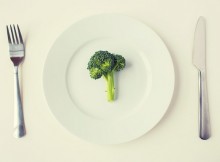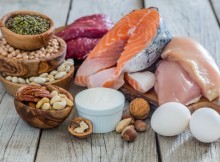What Are the Effects of Not Eating and Then Exercising?
Advertisements
If you want to lose weight or keep fit, following a nutritious diet plan and regular exercise plan is the most effective way to achieve your goals. While it's tempting to restrict calories to help you lose weight faster, not eating them can cause problems when you re exercise according to Nemours' teenshealth. If you can't stand a big meal, try to eat some nutritious snacks before exercise. (picture: antonis liokouras / iStock / Getty Images)
understanding the effect of not eating and then exercising can help you make healthy choices and keep your body at its best. The effect depends on how much you exercise and how much you eat. For example, if you don't eat for an hour after moderate exercise, you won't feel any adverse effects if you eat nutritious food for the rest of the day.
Advertisements
if you don't eat for a few hours before endurance exercise, you're more likely to feel tired, and you need to supplement carbohydrates after 60 to 90 minutes of exercise. Generally speaking, if you don't eat enough food before or at other times, you will suffer from some long-term effects, including lack of nutrition, fatigue, muscle spasm or irregular heartbeat. Tips: you always put the fuel in the car tank. You can't go anywhere without it. The same goes for exercise. If you don't fill your tank with oil, fatigue or total exhaustion may start to damage your exercise. When eating a full meal before exercise is not an option, take a range of healthy snacks with you. Most people can eat some snacks one to two hours before exercise, and some big meals or heavy snacks three to four hours before exercise. If you don't eat a few hours before exercise, you will feel more tired during exercise. If you exercise for a long time or do high-intensity exercise, if you don't eat for a few hours, you are more likely to suffer from hypoglycemia and fatigue. The American Dietetic Association says eat before exercise in the morning. You will improve your performance. According to the American Dietetic Association, your body uses carbohydrates as the main fuel for exercise. If you don't have enough carbohydrates stored in your body, your body may burn some fat. However, if your diet is strictly restricted, your body will burn muscle tissue, even organ tissue to generate energy, which will cause you to lose muscle mass, feel tired and have long-term health problems. If you don't eat enough food before exercise and don't supplement carbohydrates, don't put yourself at risk. The fat and protein your body consumes during exercise will put you at risk of malnutrition such as anemia. Anemia or low iron usually leads to fatigue and makes you feel weak during exercise.
if you don't eat enough food for a long time (such as months or years), your body may go hungry, burn the body tissue to get energy, and keep any calories consumed to keep the basic system running. Hunger patterns make it difficult to lose weight and pose serious health risks, such as bone loss, irregular heart rhythms and even heart attacks.
improve your energy level by regularly eating snacks and four small meals in a day, so that your body can work smoothly during exercise. Active people need a lot of carbohydrates, protein and healthy fat - unsaturated fat - to get energy and keep healthy. The U.S. Sports Commission recommends that healthy adults consume 45 to 65 percent of their calories a day from carbohydrates, 20 to 35 percent from fat, and 10 to 35 percent from protein.
Advertisements

Advertisements




